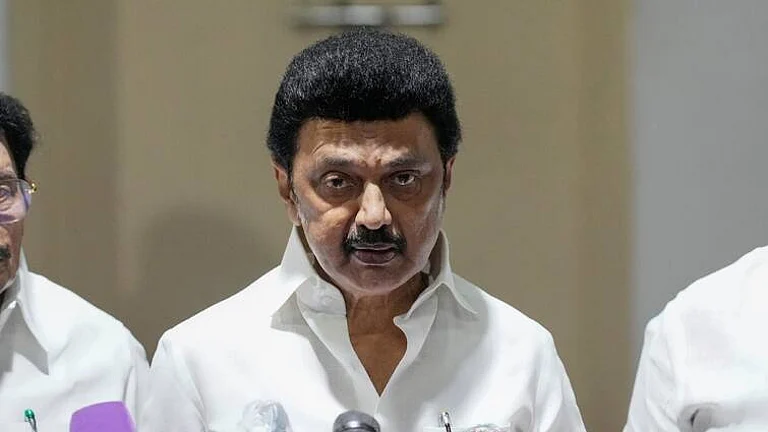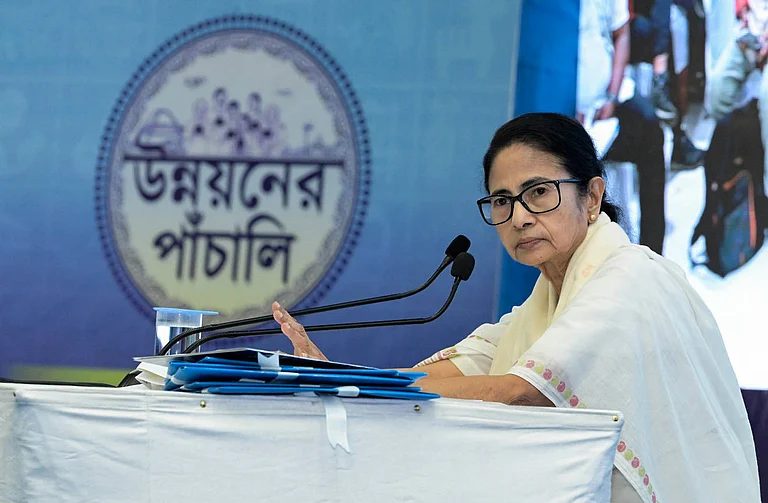The political landscape is laid out as India gears up for the 2024 Lok Sabha election, scheduled in seven phases from April 19 to June 1. As seen in the past few poll cycles, all eyes are drawn towards a significant demographic poised to play an important role in the upcoming months. At the press conference to announce the election schedule for Lok Sabha and state assemblies, Chief Election Commissioner Rajiv Kumar highlighted that at least 12 states and union territories in India have more female voters than male, while overall, the country’s gender ratio is 948 female to 1,000 male voters, which is also a good place to be at.
With more and more women stepping out to cast their vote and entering the political discourse, they have found themselves at the forefront of an array of welfare schemes and announcements by political parties. In the Assembly elections held in December last year, one of the biggest factors that tipped the scales in the Bharatiya Janata Party’s favour in Madhya Pradesh was the Ladli Behna scheme, while schemes with cash handouts to female heads of families and free bus rides for women are said to have formulated Congress’ victory in Karnataka months before that.
With Lok Sabha polls just a month away, ‘Nari Shakti’ has taken centre stage again. Outlook takes a look at a few of the many welfare schemes tipped to woo women voters:
‘Lakhpati Didi’ Yojana
Addressing the country on Independence Day last year, Prime Minister Narendra Modi had pitched a women empowerment scheme called ‘Lakhpati Didi’ to provide skill development training to 20 million women in villages across the country. The scheme aims the provide training to women in skills like electrical work, LED bulb making, operating and repairing drones etc. The aim is also to make more women self-reliant and make cooperatives a strong part of rural life by scaling them up in sectors such as agriculture and fisheries. The government claims that more than one crore women have become ‘Lakhpati didi’ so far.
Part of a larger ‘Sashakt Nari-Viksit Bharat’ programme, this is one of the several schemes launched by the ruling party to promote self-help groups. During her budget announcement, Finance Minister Nirmala Sitharaman also announced that the government will be extending the target of the scheme from 2 crore to 3 crore women.
Sukanya Samriddhi Yojana
The Union government launched the Sukanya Samriddhi Yojana (SSY), a tax-free small savings scheme for girls below the age of 10 years. As per the scheme, parents can open an SSY account in the name of their girl child to save money for their education and marriage. The initiative was launched in January 2015 with the idea to address the declining child sex ratio and promote the education of girl child. In December 2023, the government hiked the interest rates on the Sukanya Samriddhi Yojana by 20 basis points for the January-March quarter ahead of the general elections, raising it from 8 to 8.2 per cent. The Sukanya Samriddhi Yojana stems from BJP’s flagship ‘Beti Bachao, Beti Padhao’ programme which garnered it recognition in the rural parts of India.
‘Nari Nyay’ Mission
On March 13, Congress senior leader Rahul Gandhi announced five ‘Nari Nyay’ guarantees ahead of the Lok Sabha elections. Addressing a ‘Mahila Sammelan’ in Maharashtra’s Dhule district while on his Bharat Nyay Jodo Yatra, the Wayanad MP promised a direct deposit of Rs 1 lakh into the bank accounts of poor women and 50 per cent reservation for women in all new recruitments in Central government jobs if his party is voted to power. Under the ‘Shakti ka Samman’ scheme, he promised to double the income of ASHA (Accredited Social Health Activist) workers, Anganwadi women and those in mid-day meal schemes. He also proposed to establish ‘Savitribai Phule working women’s hostels’ in every district across the country.
Mahila Samman Yojana (Delhi)
At the 10th budget of the Aam Aadmi Party government in Delhi, finance minister Atishi announced the Mukhyamantri ‘Mahila Samman’ Yojana, promising a monthly stipend of Rs 1,000 to all women above 18 years of age and promoting their free travel in public buses. More than one women in the family are also eligible for this scheme. The only conditions for the scheme are that the benefiting woman should be a Delhi voter, should not be availing benefits under any other scheme of the government and should not be a taxpayer.
Mukhya Mantri Kanya Utthan Yojana (Bihar)
‘Kanya Utthan Yojana’ is a social welfare scheme launched by Bihar Chief Minister Nitish Kumar to encourage women in the state to pursue higher education. As per the scheme, families from the economically weaker sections (EWS) with girl children will get financial assistance right from Rs 2,000 after her birth and upto Rs 50,000 until graduation if she secures first division in Class 12 board exams. Launched in 2018, the programme aims to reach 16 million girls annually.
Lakshmir Bhandar Scheme (West Bengal)
In February 2021, the Mamata Banerjee-led West Bengal government launched ‘Lakshmir Bhandar’ scheme, a flagship program to provide monthly financial assistance to women between 25-60 years age group from economically weaker sections who are enrolled in 'Swasthya Sathi' program.
Ahead of the Lok Sabha elections, while presenting an annual state budget, the government revised the rates under the scheme. Instead of Rs 500 per month, the government will now give Rs 1,000 to General category households, while to SC/ST households, it will give Rs 1,200 instead of Rs 1,000. Political analysts have called it yet a masterstroke by the Mamata government ahead of the general elections.























